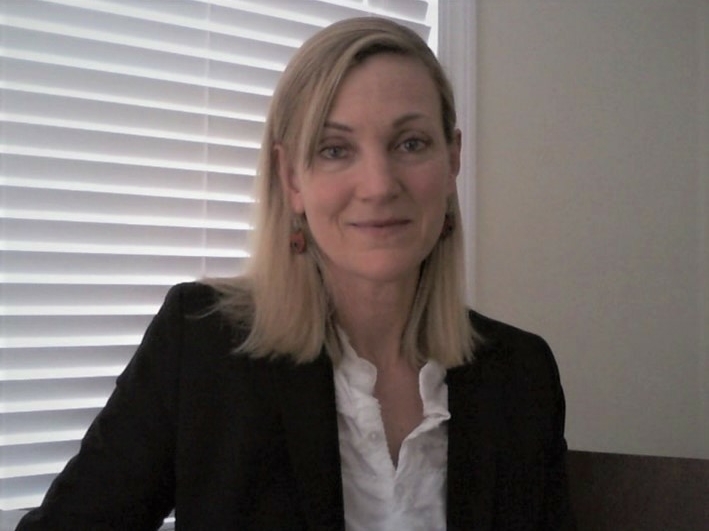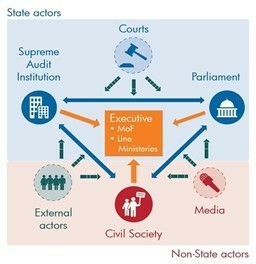
Delaine McCullough is Head of Climate Finance Accountability at the International Budget Partnership. She and Paul Steele, Chief Economist at the International Institute for Environment and Development, lead component C of the IBFCCA program, which works to strengthen oversight, transparency and accountability actors and practices. She facilitated session 3b on ‘budget oversight and accountability, lessons from Africa and Asia’ at the peer learning and exchange event on the integration of climate change into budgeting and finance. The blog provides insight into the essential role played by civil society organizations in strengthening climate related budget oversight and accountability.
The Inclusive Budgeting and Finance for Climate Change in Africa (IBFCCA) initiative is taking a uniquely comprehensive approach to promoting stronger links between climate change policy and government budgets that engages governments, formal oversight institutions and a range of non-state actors—in individual countries and across the region. This integrated multistakeholder approach was reflected in a session on public accountability at the first IBFCCA regional peer exchange in February 2021.
The IBFCCA’s focus on strengthening climate-related public finance management and accountability recognizes that the climate crisis, by threatening the natural systems that our lives, societies, and economies depend on, is simultaneously an environmental, economic, and developmental issue.
And it’s also an equity issue. If you are poor, female or otherwise marginalized, you are at great risk of losing your already limited assets, livelihood, and potentially your life from climate change impacts. Failure to address this disproportionate risk as we tackle climate breakdown threatens to undermine countries’ development efforts and deepen existing poverty and inequality in the region.
Responding to climate change will be one of the greatest public finance challenges for the foreseeable future. National and subnational governments play a substantial role in both mitigating the causes of climate change and adapting to its impacts. Some of this response will be through regulations and other policies, but much will be through domestic public finance systems, either through revenue policies, like carbon taxes, that indirectly influence investor and individual behavior or direct spending on infrastructure, programs, and services.
To effectively manage the substantial funds required for their climate responses, countries must build and sustain strong formal public finance accountability systems and practices. In addition, growing evidence indicates that effective and accountable climate finance governance is most likely to happen when strong formal systems are embedded in “accountability ecosystems”. A vibrant accountability ecosystem is one in which a range of civic actors (i.e., civil society organizations (CSOs), policy think tanks, sector-based advocates, community-based organizations, etc.) engage with one another and with other state and non-state actors over the use of climate-related financial resources.

The Accountability Ecosystem
We know that CSOs and others outside government have an essential role to play, so the IBFCCA supports a more expansive view of oversight and accountability, in which governments, oversight institutions, civic actors and citizens are focused on improving policies, execution, and ultimately, outcomes. In such a model, CSOs and other civic actors can:
- Provide information about the needs of people and communities and evidence-based recommendations to improve the use of funds;
- Be an ally to governments and oversight institutions that can connect them with what is happening on the ground & provide analytical support;
- Monitor implementation of policies, programs, and projects and feed information on what is and isn’t working back into the policy and accountability process; and
- Raise awareness and build capacity of communities and other organizations to participate in planning, implementation, and oversight processes.
The Public Accountability session at the IBFCCA exchange featured a panel that spoke to the potential that broader and deeper civil society and government engagement can have on ensuring the effective management of public finance for mitigation and adaptation actions.
First, bringing lessons from Asia, Tanjir Hossein, the Lead of Climate Resiliency and Justice at ActionAid Bangladesh (AAB) spoke about civil society efforts to inform climate budget debates and work with government on an effective response to climate change. Since 2009, AAB, the International Centre on Climate Change and Development and the Citizens Budget Movement—a broad coalition of civil society organizations—has participated in climate change planning processes, responded to proposed climate change budgets at the national level and begun to monitor climate-related spending in at-risk communities.
George Osei-Bimpeh, Country Director of SEND-Ghana followed with examples of how SEND is partnering Oxfam International on a gender-responsive budgeting initiative that could inform efforts to develop approaches to gender-responsive climate change financing. In addition to its engagement with the government on budget policies that impact women, small-holder farmers and the sustainable development goals, SEND has also worked with Ghana’s supreme audit institution to amplify audit findings and advocate for effective government responses. Mr. Osei-Bimpeh reflected that “SEND-Ghana has deep experience in linking people and communities to budget policy making and accountability processes in order to ensure that public resources are used to meet public priorities, so we’re looking forward to engaging with government and other stakeholders around the critical issue of climate change financing.”
Wrapping up the discussion, Ronald Mugobera, Program Assistant for the Civil Society Budget Advocacy Group (CSBAG) in Uganda, gave participants an overview of the work of this coalition of 100 civil society groups to strengthen public participation in budgeting. CSBAG has a formal relationship with the Ministry of Finance, Planning and Economic Development to improve citizen engagement in budgeting, monitor budget execution and contribute to oversight. They also partner with the Office of the Auditor General to follow-up on audit findings and present budget analyses and alternative budget proposals to Parliament and government. Mr. Mugobera explained, “CSBAG has already taken some early steps to analyze how the government in Uganda is responding to climate breakdown and its impacts on people and sectors, which has set us up to deepen our participation in climate-related planning and public finance.”
These brief summaries only scratch the surface of the work of these organizations and the various ways that civil society organizations can help link people to budgets and contribute to government efforts to use the public finance system to support progress toward the IBFCCA’s ultimate aims to:
- reduce negative climate change impacts, especially for women; and
- help identify and promote opportunities for low-carbon growth.
The IBFCCA will continue the regional dialogue around climate-related public finance that is inclusive and accountable in a peer exchange focused on this topic in August 2021. Informing this exchange will be the climate finance landscape assessments in Ghana and Uganda that SEND-Ghana and CSBAG are currently conducting.